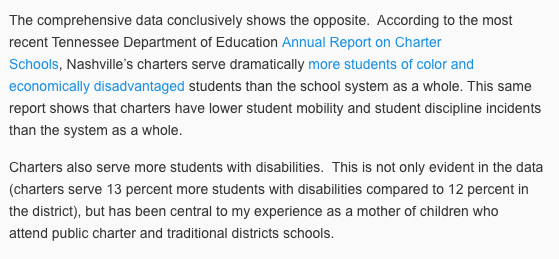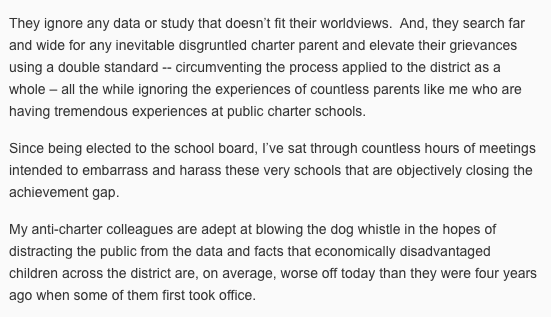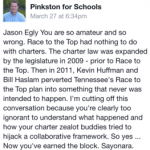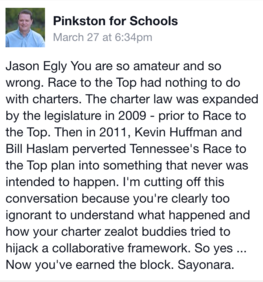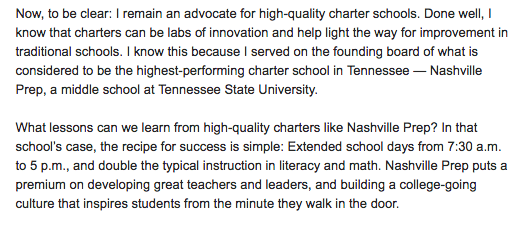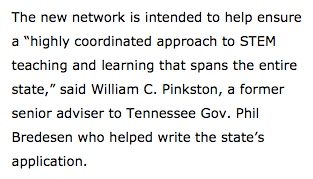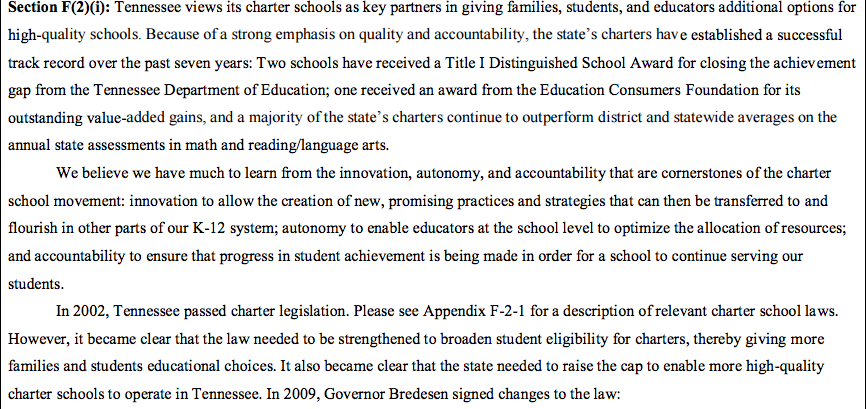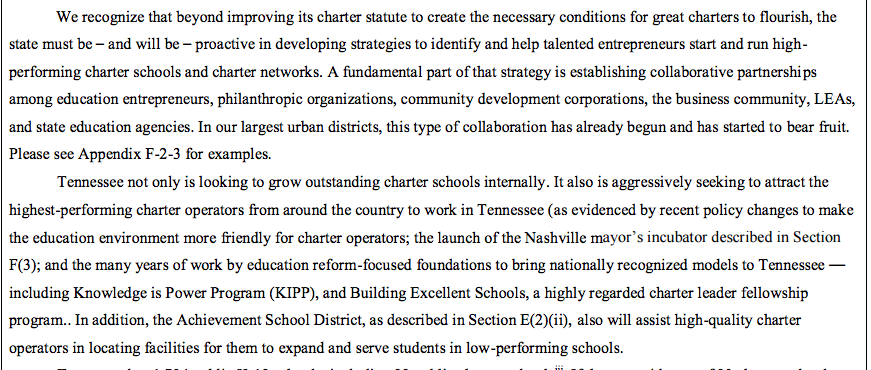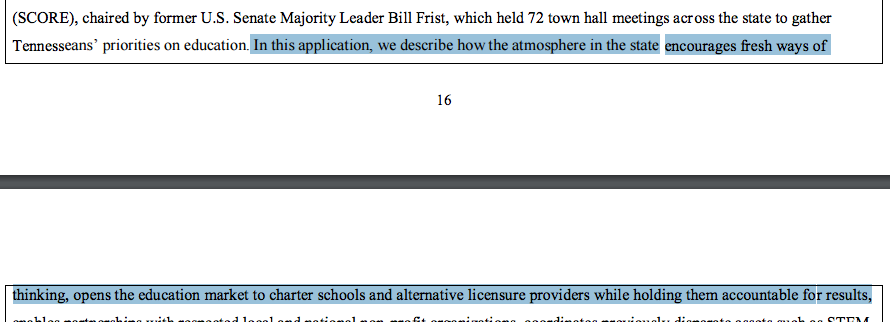I made it!
I completed my first year of teaching. It was an eye opening experience that has helped mold my views in education in a variety of areas.
I am a special education teacher at a North Nashville middle school. Our fifth graders come into fifth grade already behind. It’s our job to catch them up during the middle school years before we send them off to high school. That shows me that we have dropped the ball along the way to middle school. We have come to a point where it’s okay that students come in to middle school behind. That shouldn’t be okay.
There are bad teachers and they should not be in the classroom. There isn’t more I can say about this. Every career field has bad workers, and the teaching profession is no different.
The TEAM evaluation made me a better teacher. The rubric was really helpful in my growth as a teacher. The feedback I received from my principal and assistant principal really helped. I knew what my principal expected from me and I met those expectations. I was glad that I was being held accountable.
(Don’t get me started on teacher prep programs.)
In regards to TCAP testing, I did not see the scary testing chamber where we take the fun out of education and force the students to bubble in answer sheets for days at the time. We hit the standards that needed to be hit during the year, and we cycled back through a review when we got closer to TCAP. We still taught new concepts, read new books, started new projects, and had fun. Schools decide their climate, and my climate was not like any of the scary stories that I read online. Assessments are an important tool in the education of our students. They are needed to make sure that I am doing what I am supposed to as a teacher. I am glad that the accountability is there.
I did a lot this school year:
I’ve broken up fights.
I’ve had to stop students from harming themselves.
I had to use our school’s resources to get a student clothing so he didn’t have to wear the same clothes every day.
I have given a legislative update to teachers.
One of our students was shot in the head while standing in the doorway to his home.
Student’s parents have been murdered.
I have seen a mother cry tears of joy that her son was receiving a quality education.
I have seen parents beam with pride about how well their student is doing in life.
A parent has yelled at me.
I’ve read all the Common Core State Standards for 7th grade.
I have taken to twitter to get someone to donate books to my class.
I have been sick. A lot.
I have given a tour to a school board member.
I have written an op-ed in the Tennessean about our school board.
I have gotten pushback from school board members about my op-ed.
After my op-ed, people inside my school told me to watch what I say in public about my school board.
I have been mad, frustrated, sad, happy, joyful, excited, and angry.
I have seen a student do better by getting more special education services.
I have seen a student grow by reducing the amount of special education services.
I have read a loud many different types of texts.
I’ve made others cry when describing students at my school.
I’ve become frustrated when teachers tell me it’s okay that students are behind because everyone else in behind.
I got students to read and enjoy books.
I’ve heard a teacher say that you can only teach a student for so long before you need to give up and help the other kids.
I have seen teachers work mornings, nights, and weekends so that our students could succeed. One teacher would teach during the day, tutor after school multiple days, tutor on Saturday, and teach Sunday school the next day.
No matter where our students grow up, they can all learn and succeed in our education system. I have seen students come into our school that are so behind. We have failed that child along the way. Someone dropped the ball and that makes me really sad. But we need to accept blame for dropping the ball.
Everyone wants to blame someone else for a child being behind:
“They came from charter.”
“They are special ed.”
“They come from a bad part of town.”
Before that student left for a charter, they were most likely in a zoned school first. All students can learn, including students with disabilities. No matter where you come from, you are able to learn at the hands of great teachers.
We want to blame everyone but ourselves. I’ve made mistakes this year, but I know that I will come back next year and fix those mistakes. I will admit that there are problems that still need to be fixed in my teaching method, in my personality, and in the school system as a whole. Sugarcoating issues in life doesn’t make it better. I would rather be honest about education than to sugarcoat and lie about the state of our education system.
